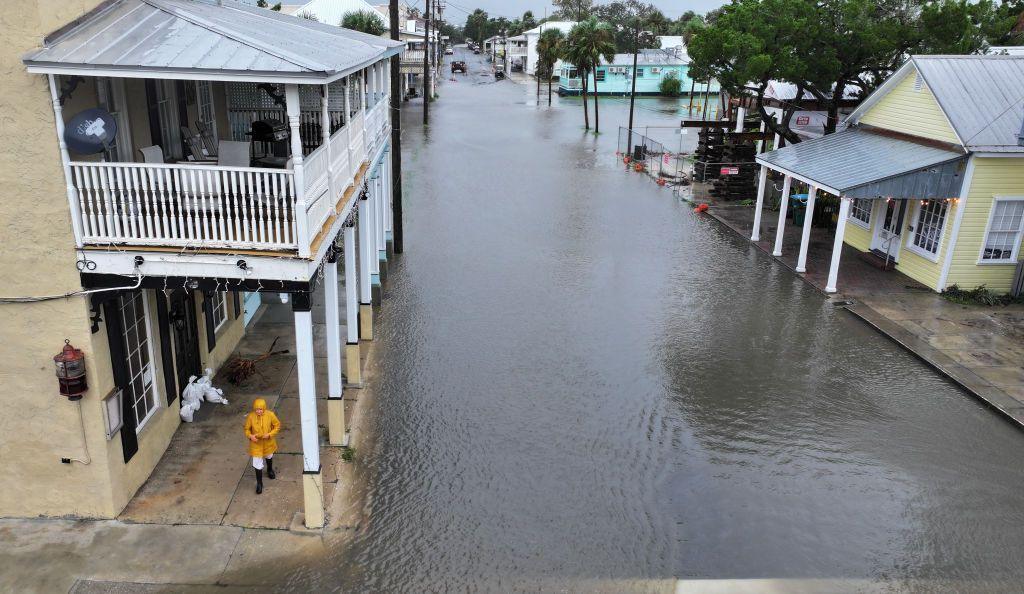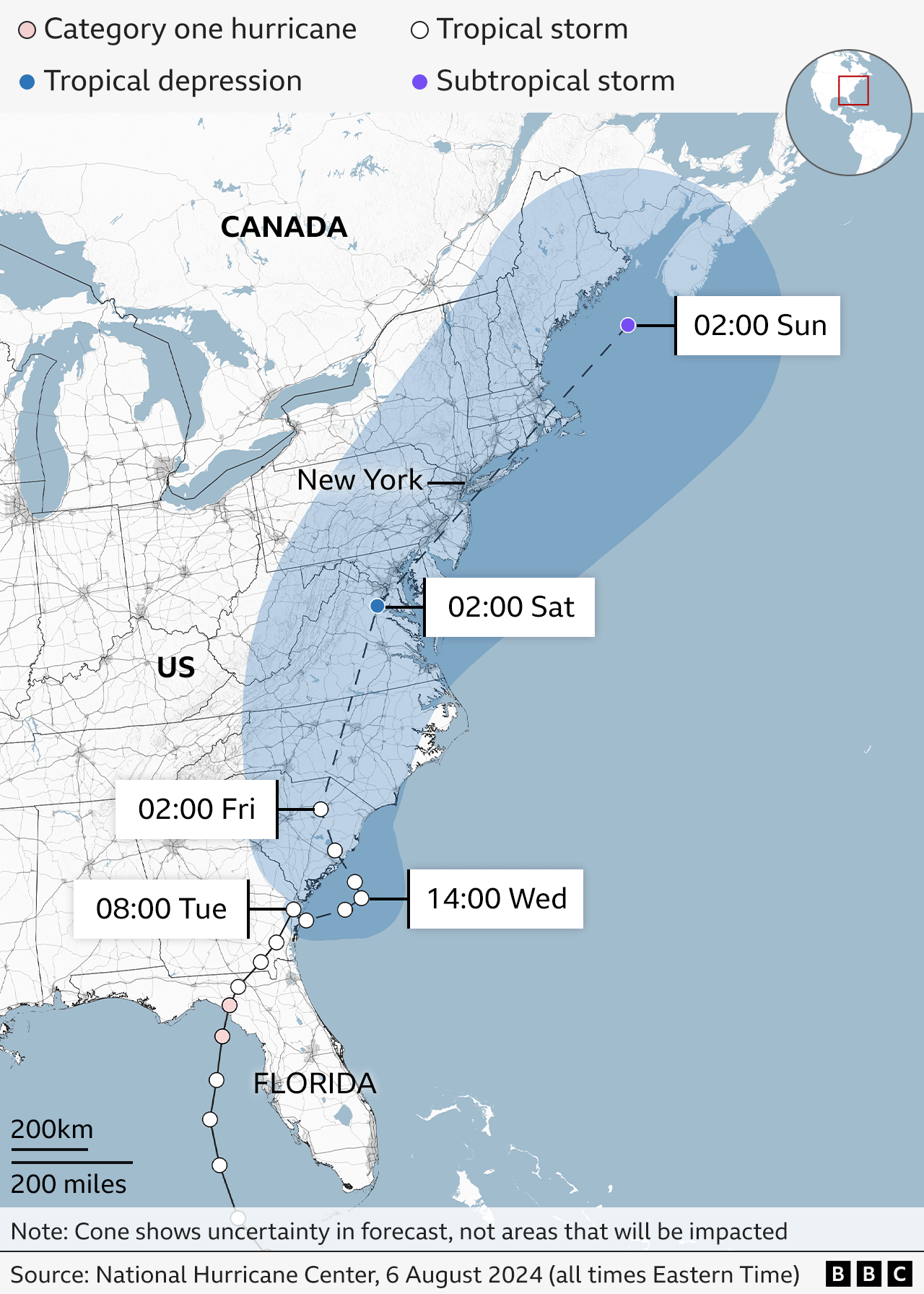Deadly Tropical Storm Debby drenches historic southern cities
Florida's streets become rivers
- Published
Tropical Storm Debby unleashed prolonged downpours and flooding to historic southern US cities, as authorities warned residents to expect a "rough day" on Tuesday.
At least five people were killed after Debby slammed into Florida as a category one hurricane before weakening to a tropical storm.
On Tuesday morning, the storm was moving up the East Coast from Georgia to South Carolina, where it was expected to re-strengthen.
The National Hurricane Center (NHC) warned of a "life-threatening" flood threat as the slow-moving storm drenched historic southern US cities.
Moments sailors are rescued as Hurricane Debby hits Florida
Officials in Georgia said the state had largely avoided the worst so far, but the threat was moving towards South Carolina's eastern half.
"I do think that the catastrophic threat has now shifted more into South Carolina,” Chris Stallings, director of the Georgia Emergency Management and Homeland Security Agency told reporters on Tuesday.
He also noted that there was still plenty of rain to come and a chance the storm could shift back into Georgia.
More than 8in (20 cm) of rain have already fallen on Savannah and Valdosta, Georgia, the National Weather Service said.
Charleston and Hilton Head, in South Carolina, have received between 10 and 12in (25 and 30 cm) of rain so far, with more on the way.
Charleston extended a curfew put in place in the low-lying coastal city on Monday night through Wednesday morning.
Mayor William Cogswell said more than 2ft (61 cm) of rain is expected in his city before the storm passes.
There are "not enough pumps in the world" to handle that much rain, Mr Cogswell said.
Officials urged residents to stay home, with Mayor Cogswell saying: "We especially don’t need any yahoos driving through the water and causing damage to property."
The storm is forecast to skim the coast on Tuesday and Wednesday, before moving inland near the South Carolina coast on Thursday.
The next day will be a critical time for the storm. BBC Weather's Chris Fawkes says that as the centre moves back out to sea, it will churn over the warm waters of the Atlantic, where sea temperatures are 84.2F (29C) and re-strengthen Debby.
The latest forecast calls for the winds to pick up to 57mph in the next 48hrs, which would still make Debby a tropical storm – but not far off from the hurricane threshold of 74mph. How close the storm gets to that threshold depends on how much time it spends over the Atlantic, Fawkes says.
The slow-moving pace of the storm could bring “catastrophic flooding”, Jamie Rhome, the deputy director of the hurricane centre, said.
In Florida, authorities have begun to assess the damage Debby left behind. Lakewood Ranch, Florida - near Sarasota - saw the most rain of any place in the state with more than 16in records.
Stretches of the Manatee river have reached record levels and several others remain at "major flooding" levels.
Authorities said the dead included a 13-year-old boy who was killed when a tree fell on to a mobile home in the town of Levy County, located near Gainesville.
In Hillsborough County – around Tampa - an 18-wheel lorry veered into a canal during the storm. The driver was found dead.
In Dixie County, just west of Gainesville, officials reported that a woman and a 12-year-old were killed when their car crashed on Sunday night.
In southern Georgia, another death - a 19-year-old - was reported after a large tree fell on to a porch at a home in Moultrie, local media reported.
Debby’s waves and strong winds helped blow 25 packages of cocaine, worth more than $1m (£790,000), ashore in the Florida Keys, according to the US Border Patrol.
In Florida, some 107,000 homes and businesses were without power on Tuesday morning, according to PowerOutage.com. Another 28,000 residents in Georgia and South Carolina were experiencing outages.

Forecasters predicted this hurricane season, which runs from 1 June to 30 November, would be a busy one.
The National Oceanic and Atmospheric Administration (Noaa) said there could be up to 25 named storms in 2024.
Between eight and 13 of those storms could develop into hurricanes.
Debby was the fourth named storm of the year.
It is thought that climate change may be making slow-moving hurricanes like this more likely.
As the world heats unevenly, this causes changes in the atmospheric circulations that steer storms across the planet.
Tropical storm Debby still poses huge flooding risk
Map: Predicted path of Storm Debby

Caribbean braces as Hurricane Beryl strengthens
- Published30 June 2024
Atlantic to get 'extraordinary' hurricane season
- Published23 May 2024
Get in touch
Are you affected by the hurricane? Please get in touch if it is safe to do so.